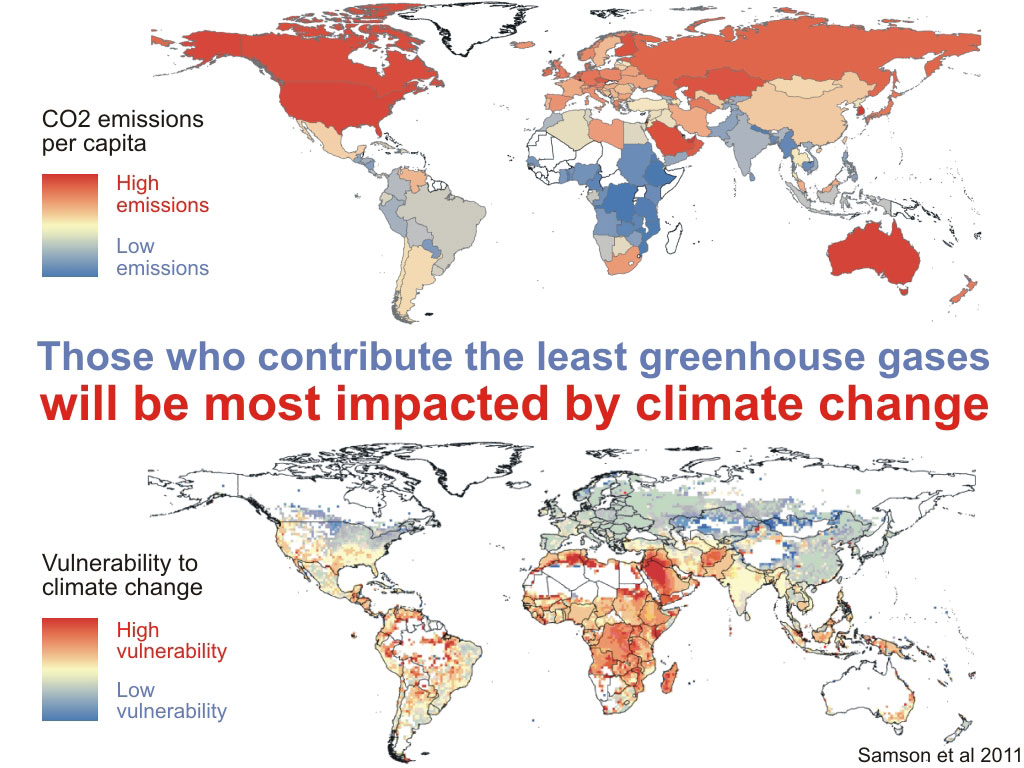
“When the winds of change blow,” says an old Chinese proverb, “some build walls, and others build wind mills.”
These same words closed the meeting in March of the Climate Parliament, a forum in Brussels that brought together legislators from around the world who are committed to the fight against climate change. Parliamentarians, United Nations representatives and the International Energy Agency (IEA) alike agreed that ending dependency on fossil fuels is one of the most urgent steps needed to combat it effectively.
The voices from the Climate Parliament join a growing crescendo of influential actors who are speaking out about the need to clean up our energy habits. During January’s World Economic Forum in Davos, Lord Nicholas Stern, author of a well-known reportoutlining the measures that the world should take to avoid runaway climate change, admitted that the planet is on track to warm by four degrees Celsius this century. Looking back, Stern said, his report could have been more insistent about the need to take determined action to avoid the catastrophic risks that this level of warming implies.
Stern’s sentiment was echoed by Christine Lagarde, Managing Director of the International Monetary Fund, who pleaded in favor of stronger climate action to prevent future generations being “roasted, toasted, fried, and grilled.” And World Bank President Jim Yong Kim announced that his institution would prioritize the fight against climate change and focus on promoting, among other measures, the elimination of subsidies doled out to the fossil-fuel industry.
With this pledge, the World Bank joined an expanding list of international bodies, including the UN, the IMF, and the OECD, that are calling for an end to such subsidies. Globally, we are on track to reach an international climate deal. But this will still take time, while the need for action will not wait. Harnessing the existing broad consensus against fossil-fuel subsidies is possible even in the absence of a legal agreement, and could quickly have a significant positive impact.
According to the IEA, fossil-fuel subsidies rose by almost 30%, to $523 billion, in 2011. Meanwhile,the UN Environment Program reports that global investment in renewable energy totaled only $257 billion in 2011.
In other words, we are doing exactly the opposite of what we should be doing. Support for energy efficiency and renewable energy sources is lagging, while governments around the world spend hundreds of billions of dollars subsidizing an incipient catastrophe. This must change.
As European Commissioner for Climate Action, I am particularly keen to see three international financial institutions – the European Investment Bank, the European Bank for Reconstruction and Development, and the World Bank – join with their EU and OECD partners to take a lead role in eliminating public support for fossil fuels. Together, these three institutions lend more than €130 billion ($168 billion) annually for projects in Europe and beyond, and maintain a strong advisory role in beneficiary countries. This year provides an especially important opportunity to use this potential for action.
All three institutions have announced reviews of their lending policies for the energy sector. The outcome will underpin their lending over the next 4 to 6 years, and send a strong political and financial signal about worldwide commitment to addressing climate change. Four to six years is also the interval over which climate scientists predict that greenhouse-gas emissions must peak and start to be reduced if the world is to have any hope for a decent future.
Multilateral lenders can lead by example by restricting conditions for public financing of coal, the most damaging fossil fuel, and by pressing for greater transparency in reporting on emissions. Encouraging investments in renewable energy and increased energy efficiency will have the added benefit of boosting long-term self-reliance and resilience against the volatility of fossil fuel prices.
More broadly, international financial institutions should guide public and private investments alike away from a short-term logic. Supported by a stable, long-term climate-policy framework, public financing can drive the decarbonization of our energy system and our economies.
Instead of offering unsustainable and environmentally damaging subsidies for fossil fuels, public finance should encourage the development of new industries and businesses that are emerging in the course of the low-carbon transition. The industries of the future, which will create jobs that last, are those that will use scarce resources efficiently, and that can pay the real environmental and health costs of the resources that they use.
Connie Hedegaard is E.U. Commissioner for Climate Action.
3 WAYS TO SHOW YOUR SUPPORT
- Log in to post comments












